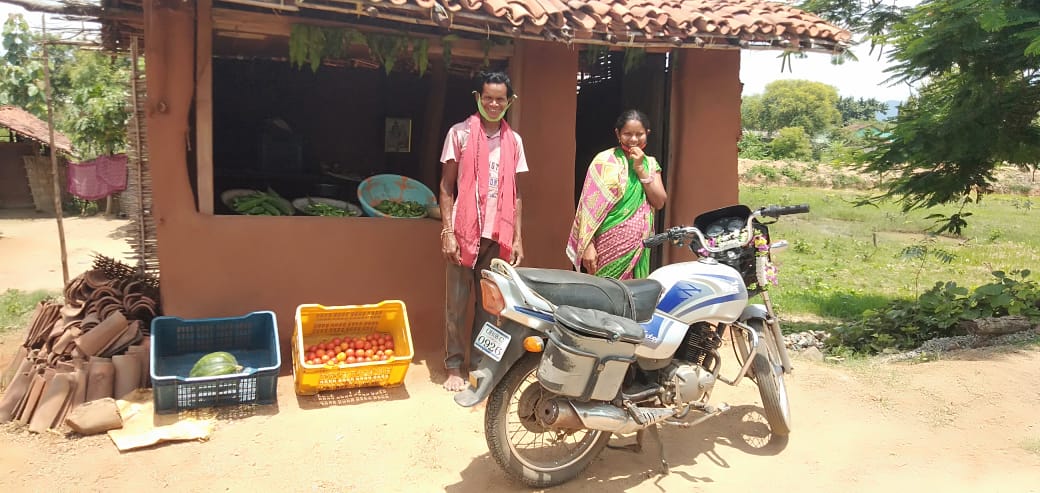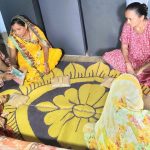LIVELIHOOD
With a small piece of land that did not produce enough to feed the family of seven, Tapaswini Manjhi and her husband, Rohit Manjhi, were forced to work as a daily wage laborers in one of the most socially and economically backward districts of Odisha. For them, life was dependent on the daily wage that they would get to sustain the family. The hardships compelled the couple to migrate to another state, however, nothing seemed to change as they faced a multitude of problems related to child education, lack of access to medical facilities, and care of aged parents seeking their assistance and support in the village. They decided to move back to their native village and started working as laborers while also cultivating limited seasonal crops in their land. Meanwhile, Tapaswini joined the farmer’s group operational under CARE India programme – Technical Assistance and Research for Indian Nutrition and Agriculture (TARINA). She learned methods to improve cultivation and crop management practices. Frequent interaction and motivation encouraged her to approach the project officials, who helped her in receiving assured irrigation support through the construction of a dug well in her land under one of the project initiatives.
The availability of assured water source opened a new chapter in Tapaswini’s life, as now she could utilize the otherwise fallow land near homestead for the cultivation of local vegetables to meet household consumption. Following the project recommended standard operating procedures (SOPs) for vegetable cultivation, she could produce enough vegetables for her household consumption and sold excess vegetables produced in the haat (local marketplace).

Life appeared to be on track when the global novel coronavirus disease 2019 (COVID-19) pandemic hit the region and lockdown was imposed resulting in the closure of markets and limiting mobility. At this juncture, the availability of vegetables was far-fetched all around. Under such turmoil, the dug-well turned to be a boon for Tapaswini in partially meeting the demand for green vegetables not only for her family but also for the villagers. Through the uninterrupted irrigation facility, Tapaswini was not only able to provide fresh seasonal vegetables for her family and locals but was also able to earn an extra income during such unprecedented circumstances. From the income earned through the sale of vegetables, Tapaswini and her husband purchased a motorbike and eventually also opened a shop in the village. Now, Tapaswini sells fresh vegetables in the village from the newly opened shop and Rohit vends vegetables harvested from the farm in nearby areas on the bike.
Tapaswini Manjhi says “I have always believed that when life throws challenges at you there is always a way out to overcome the hurdles with perseverance and hard work.”
Through the TARINA platform, CARE India has been developing field-validated models to achieve food and nutrition security for our project participants. Working through Self-help Groups (SHGs) and Farmer Field Schools as learning platforms, the project team is capacitating the women members to use their knowledge, productive resources, markets and value addition opportunities to improve their food system, including cropping practices and animals rearing.






